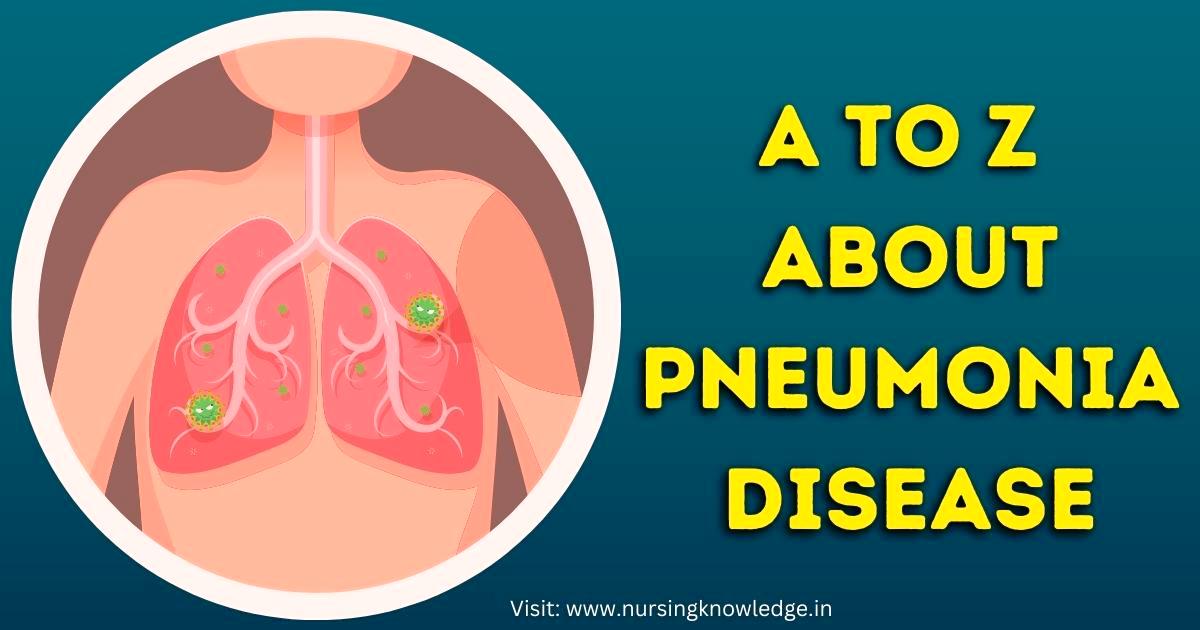Pneumonia disease is an infection of the lungs that can be caused by bacteria, viruses, or fungi. The infection causes inflammation of the air sacs in the lungs, known as alveoli, which can become filled with fluid or pus. This can lead to difficulty breathing, coughing, and fever, among other symptoms. Early treatments of Pneumonia can help prevent complications and improve outcomes. If you or someone you know is experiencing symptoms of pneumonia, it is important to seek medical attention right away.
Pneumonia can affect people of all ages, but it is most commonly seen in older adults, young children, and people with weakened immune systems. The symptoms of pneumonia can vary depending on the cause of the infection and the severity of the illness. Common symptoms include cough, fever, chest pain, shortness of breath, fatigue, and confusion or delirium in severe cases.
Read More: All about uses of Amoxicillin
What are the Types of Pneumonia disease?
There are several different types of pneumonia, each with its own specific characteristics and causes. Here are some of the most common types of pneumonia:
Community-acquired pneumonia (CAP):
This type of pneumonia is acquired outside of a hospital or healthcare setting. It is most commonly caused by bacterial infections, but can also be caused by viral or fungal infections.
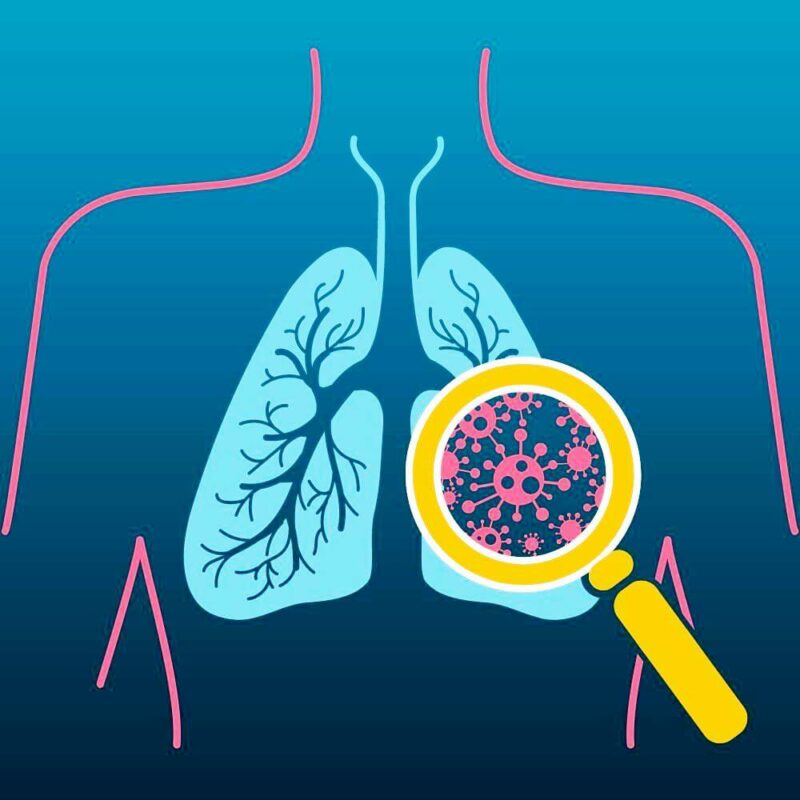
Hospital-acquired pneumonia (HAP):
This type of pneumonia is acquired during a hospital stay or healthcare setting. It is usually caused by bacteria that are resistant to antibiotics and can be difficult to treat.
Aspiration pneumonia:
This type of pneumonia occurs when a person inhales food, liquid, or vomit into their lungs. It is most common in people with a reduced level of consciousness or difficulty swallowing.
Ventilator-associated pneumonia (VAP):
This type of pneumonia is a specific type of HAP that occurs in people who are on mechanical ventilation. It is usually caused by bacteria that are resistant to antibiotics.
Read More: Best Cataracts Treatments
Walking pneumonia:
This is a milder form of pneumonia that can be caused by bacteria, viruses, or fungi. It is called “walking” pneumonia because it is often less severe than other types of pneumonia and people are often able to continue their normal activities while they are sick.
Atypical pneumonia:
This is a type of pneumonia caused by bacteria such as Mycoplasma pneumoniae or Chlamydophila pneumoniae. It is called “atypical” because it does not produce the same symptoms as other types of pneumonia.
Fungal pneumonia:
This type of pneumonia is caused by fungal infections such as histoplasmosis, coccidioidomycosis, and aspergillosis. It is most common in people with weakened immune systems, such as those with HIV/AIDS.
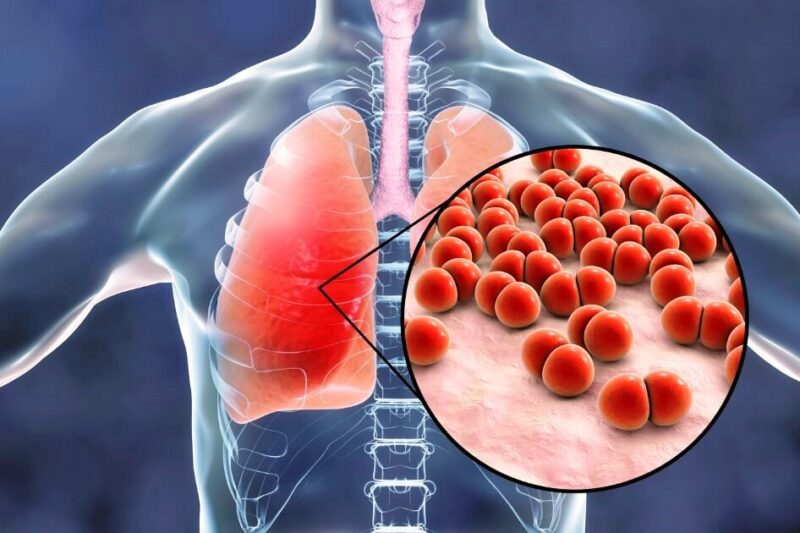
Cause of Pneumonia disease:
Pneumonia can be caused by a variety of pathogens, including bacteria, viruses, fungi, and other microorganisms. The most common causes of pneumonia include:
The bacterial cause of Pneumonia Disease:
Streptococcus pneumoniae, also known as pneumococcus, is the most common cause of bacterial pneumonia. Other bacterial causes include Haemophilus influenzae, Legionella pneumophila, and Mycoplasma pneumoniae.
Viruses cause of Pneumonia Disease:
Influenza viruses, respiratory syncytial virus (RSV), and the SARS-CoV-2 virus that causes COVID-19 can all cause viral pneumonia.
Fungi cause of Pneumonia Disease:
Fungal pneumonia is most commonly caused by the fungus Pneumocystis jirovecii, which is commonly seen in people with weakened immune systems, such as those with HIV/AIDS.
Other microorganisms cause of Pneumonia Disease:
Less common causes of pneumonia include certain types of bacteria and viruses that can be found in animals or contaminated environments, such as the bacteria that cause Legionnaires’ disease, or the fungus that causes histoplasmosis.
Risk factors for developing pneumonia include age (very young or very old), weakened immune systems (such as from HIV/AIDS, cancer treatments, or organ transplants), chronic lung diseases (such as COPD or cystic fibrosis), and lifestyle factors such as smoking and excessive alcohol consumption. Aspiration of food, drink, or vomit can also lead to pneumonia, especially in people who have difficulty swallowing or who have a reduced level of consciousness.
Sign and Symptoms of Pneumonia disease
The signs and symptoms of pneumonia can vary depending on the underlying cause, the severity of the infection, and the person’s age and overall health. However, common signs and symptoms of pneumonia may include:
- Cough: This may produce phlegm or mucus that is yellow, green, or bloody.
- Fever: A high fever is common in people with pneumonia, especially if the infection is caused by bacteria.
- Shortness of breath: This may be mild at first, but can become severe and make it difficult to breathe.
- Chest pain: This may be sharp or dull and may worsen when taking deep breaths or coughing.
- Fatigue: This can be severe, especially in older adults and people with weakened immune systems.
- Sweating and shaking: These may occur with a high fever.
- Confusion: This may occur in older adults or people with severe infections.
In addition to these common signs and symptoms, pneumonia may also cause other symptoms such as:
- Nausea, vomiting, or diarrhea
- Headache
- Muscle pain or weakness
- Bluish lips or nails (due to a lack of oxygen)
- If you or someone you know is experiencing these symptoms, it is important to seek medical attention right away, as pneumonia can be a serious condition, especially in high-risk groups.
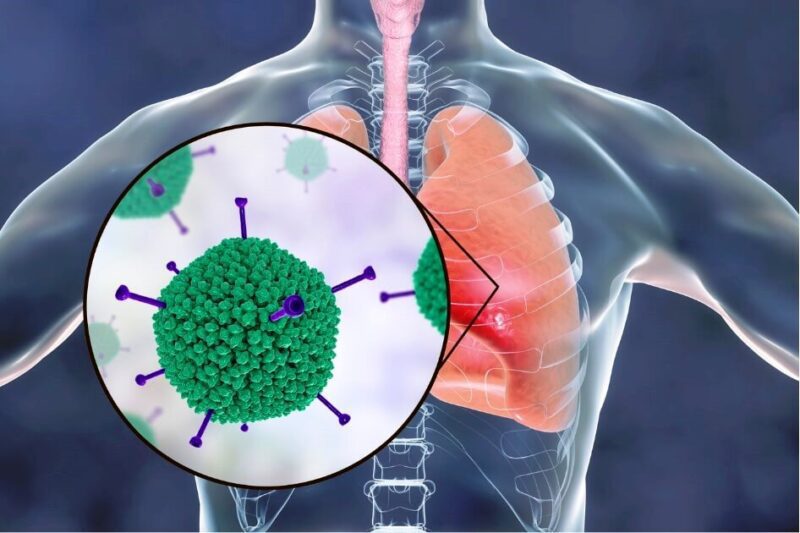
Some Common medicines used to treatments of Pneumonia:
Antibiotics are used in Treatments of Pneumonia:
Antibiotics are prescribed to treat bacterial pneumonia. Some commonly prescribed antibiotics include Amoxicillin, Azithromycin, Ciprofloxacin, Levofloxacin, and Doxycycline.
Antivirals are used in Treatments of Pneumonia:
Antiviral medications may be used to treat viral pneumonia caused by influenza or other viruses. Examples of antivirals include Oseltamivir, Zanamivir, and Peramivir.
Bronchodilators are used in Treatments of Pneumonia:
Bronchodilators are used to relax the muscles in the airways and help relieve symptoms such as coughing and shortness of breath. Examples of bronchodilators include Albuterol, Levalbuterol, and Ipratropium.
Corticosteroids are used in Treatments of Pneumonia:
Corticosteroids may be used to reduce inflammation in the lungs and improve breathing. Examples of corticosteroids include Prednisone, Methylprednisolone, and Hydrocortisone.
N.B: It's important to note that you should always follow the advice of your doctor and take all medications as per prescribed.
Treatments of Pneumonia Disease:
Treatments of pneumonia depends on the underlying cause of the infection, the severity of symptoms, and the overall health of the individual. Treatments of Pneumonia may include:
Antibiotics are used in the treatments of Pneumonia:
If the infection is bacterial, antibiotics will be prescribed to fight the bacteria. It is important to take the full course of antibiotics as prescribed, even if symptoms improve before the medication is finished.
Antiviral medications are used in the treatments of Pneumonia:
If the infection is viral, antiviral and Paracetamol medications may be used to treat the infection.
Oxygen therapy are used in the treatments of Pneumonia:
If a person is having difficulty breathing, oxygen therapy may be necessary to help them breathe more easily.
Over-the-counter medications:
Medications such as acetaminophen or ibuprofen can be used to reduce fever and alleviate pain.
Respiratory therapy are used in the treatments of Pneumonia: Respiratory therapy may be used to help loosen mucus in the lungs, making it easier to cough up.
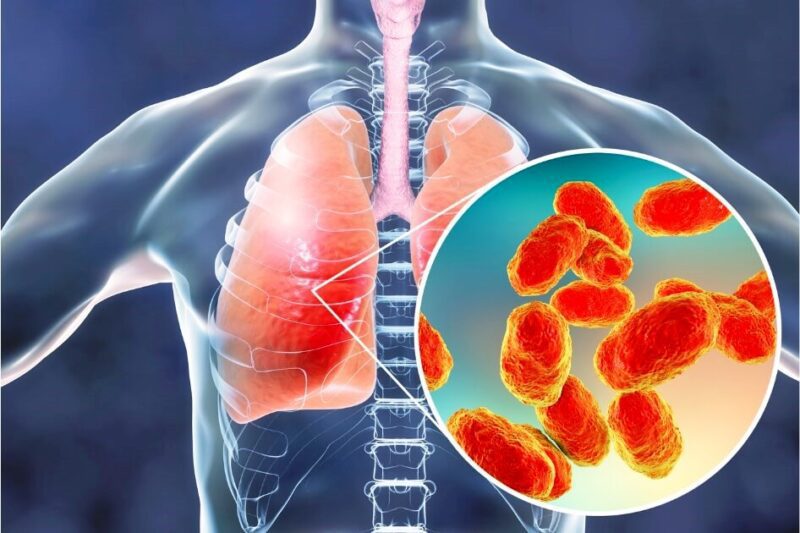
Prevention of Pneumonia Disease:
Prevention of pneumonia involves reducing exposure to the pathogens that can cause the infection. Here are some ways to prevent pneumonia:
Vaccination is used in the treatments of Pneumonia:
Vaccines are available to protect against certain types of bacteria and viruses that can cause pneumonia. Vaccines can include the pneumococcal vaccine, the flu vaccine, and the COVID-19 vaccine.
Good hygiene to help Pneumonia disease:
Frequent hand washing, covering the mouth and nose when coughing or sneezing, and avoiding close contact with people who are sick can help prevent the spread of infections that can cause pneumonia.
Managing chronic conditions:
Conditions such as asthma, COPD, and diabetes can increase the risk of pneumonia, so managing these conditions effectively can help reduce the risk.
Read More: Latest BMI Calculator
Quitting smoking to help Pneumonia disease:
Smoking can weaken the immune system and damage the lungs, making it easier for infections to take hold.
Avoid aspirating food or liquids:
People who have difficulty swallowing or who are at risk of aspirating should take steps to avoid inhaling food, drink, or vomit, which can lead to pneumonia.
Pneumonia disease is a serious medical condition that requires prompt medical attention. The treatment of pneumonia depends on the underlying cause of the infection, the severity of the symptoms, and the overall health of the patient. Antibiotics are typically prescribed to treat bacterial pneumonia, while antiviral medications may be used to treat viral pneumonia.
Conclusion of Pneumonia Disease:
If you or someone you know is experiencing symptoms of pneumonia disease, it is important to seek medical attention right away. Early treatment can help prevent complications and improve outcomes.
Source: Google, Wikipedia, and WHO
==========
Thanks for reading this article. If you have any information related to this article and blog, you can comment or visit the contact us page.
You can also visit the Competitive Exams-related Blog: Learn For Exam
==========

